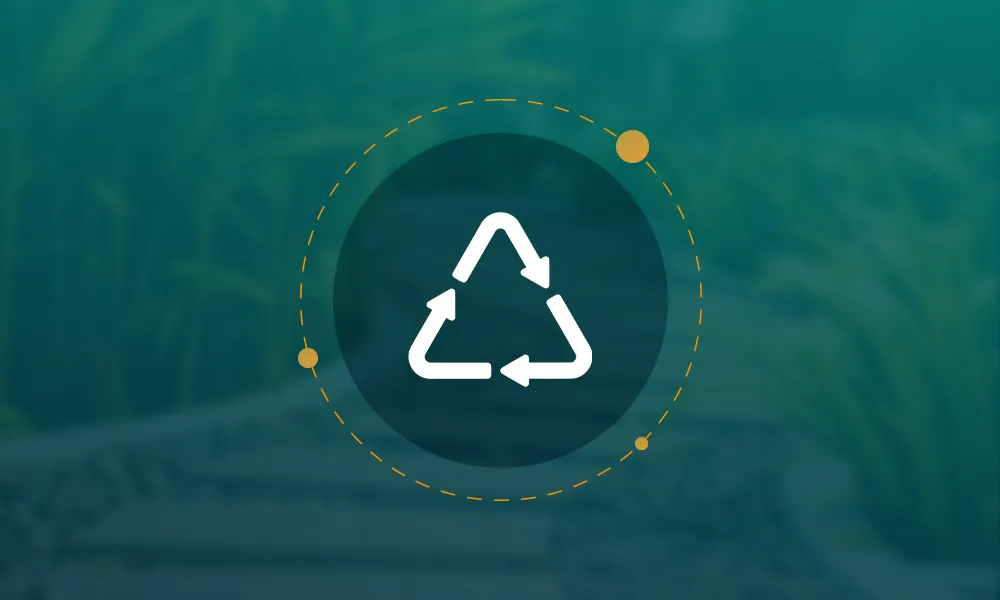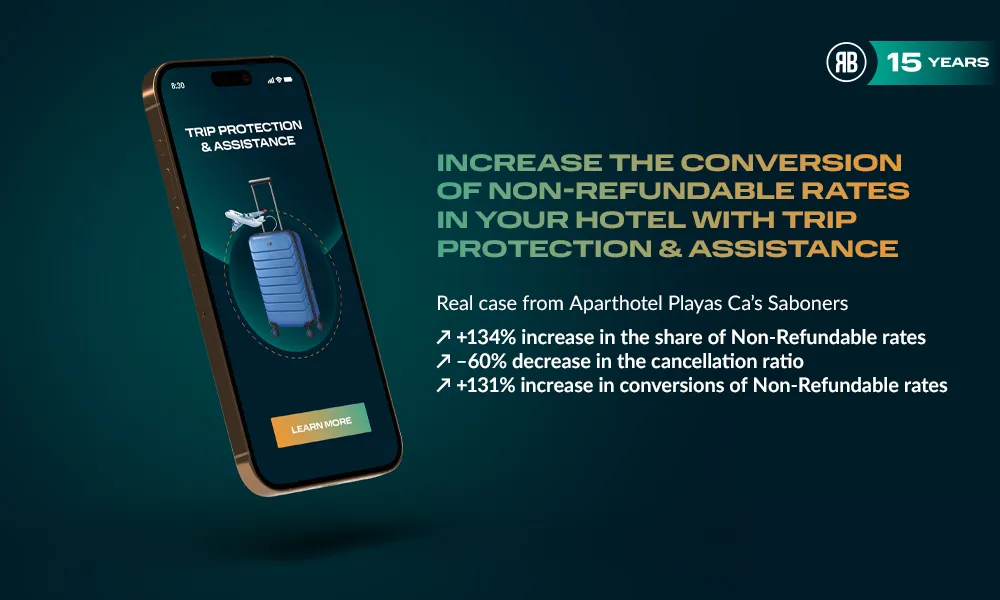From Linear to Circular: How to Evaluate and Improve Your Hotel's Circularity
News
November 17, 2025

Content in collaboration with our partner Bioscore Sustainability, a sustainability consultant for tourism companies.
Sustainability in the hotel industry has traditionally focused on reducing consumption and offsetting impacts. However, new business models require going further: moving from a linear system, based on producing, consuming, and discarding, to a circular one, where materials, products, and resources are kept in use for as long as possible, minimizing waste and promoting efficiency.
This change responds not only to market and consumer demands, but also to regulatory evolution. In the hotel sector, the transition to circularity represents a unique opportunity to reduce costs, generate added value, and differentiate from an increasingly conscious clientele. Circularity can become a key strategic tool for hotel competitiveness.
What does circularity mean in a hotel
Adopting a circular approach involves analyzing how resources are consumed, reused, and managed throughout all hotel operations: this ranges from the design of spaces and waste management to purchasing decisions and relationships with suppliers.
A Circularity Plan allows you to assess the hotel's situation and define concrete actions to move towards a more sustainable model. This translates into immediate benefits: less waste, lower costs, and more efficient management.
Practical examples of circularity:
- Responsible purchasing: choosing reusable, recycled, or long-lasting products.
- Waste reduction: optimizing buffets, eliminating single-use plastics, and properly separating waste.
- Efficient materials management: reusing textiles, furniture, and amenities with a circular approach.
- Efficient management of energy and water: understood as scarce resources, measures must be taken to reduce their consumption, primarily through the production of renewable energy and the recovery of water for self-consumption.
- Local collaborations: working with suppliers that guarantee more sustainable and local supply chains.
In short, circularity means closing the resource cycle and turning waste into value.
Diagnose to improve: the starting point
You can't improve what you don't measure. Therefore, before implementing circular measures, it is essential to know the hotel's starting point. A circularity diagnosis analyzes key areas and flows of materials, energy, water, waste, mobility, and purchases to identify opportunities for improvement and define realistic objectives. Through the diagnosis, inefficiencies are identified that allow prioritizing actions, establishing realistic objectives, and areas for improvement in the transition towards more sustainable practices.
The Bioscore Data Platform gathers, analyzes, and compares all the information necessary to start this transition:
- Registration and analysis of electricity, water, and fuel consumption.
- Comprehensive waste management, with quantification of its types and final destinations.
- ESG (environmental, social, and governance) indicators, linking circularity practices with the organization's environmental and social performance.
- Free circularity diagnostic tool that highlights progress and areas for improvement.
- Sector benchmarks, which allow evaluating the hotel's positioning compared to other establishments in the sector.
With this data, managers can make informed decisions and prioritize the most effective actions in terms of environmental and economic impact, which will allow them to optimize resources and maximize profits.
From data to action: how to integrate circularity
Once the situation has been diagnosed, the key moment arrives: transforming the data into concrete and measurable actions. Common actions in hotels:
- Implement waste collection and recovery systems.
- Redesign laundry and maintenance processes to reduce consumption.
- Choose circular suppliers: refillable amenities, recycled textiles, modular furniture.
- Train staff and set reduction targets by department.
- Communicate progress to guests, partners, and certifiers.
These actions not only reduce environmental impact, but also improve efficiency and can generate direct savings in purchasing, energy, and waste management.
Circularity and ESG strategy: a comprehensive vision
Circularity should not be managed in isolation; integrating it within the hotel's ESG (Environmental, Social, and Governance) strategy allows:
- Aligning operations with international standards.
- Moving towards recognized certifications.
- Facilitating audits and regulatory compliance.
- Creating a solid reputation based on verifiable results.
With the support of Bioscore's expert consulting, hotels can develop a circular strategy adapted to their operational reality, with a clear roadmap and continuous support.
Close the circle to open new opportunities
Adopting a circular approach allows hotels like yours to close the resource cycle, but, more importantly, it opens new opportunities for innovation, profitability, and long-term sustainability. Thanks to the combination of data, technology, and expert consulting, you receive support in this process with diagnostic tools, document management, and strategic advice adapted to the specific reality of the hotel.
Circularity ceases to be a theoretical concept and becomes a tangible competitive advantage. Discover how your hotel can diagnose and improve its circularity and start closing the cycle of your resources today. Write to us so we can work on your plan together with Bioscore Sustainability!
Read more







